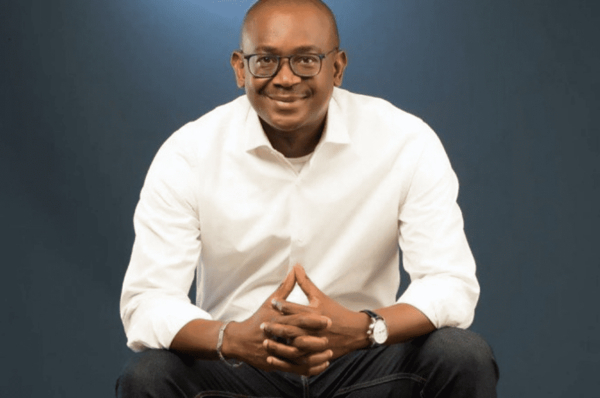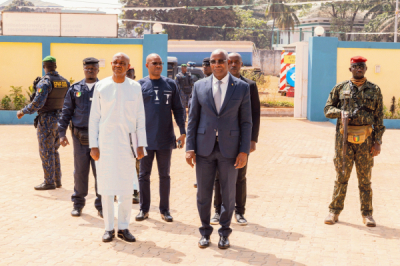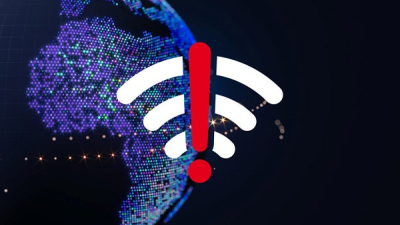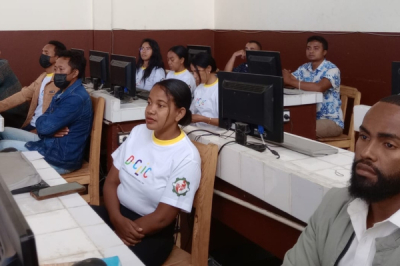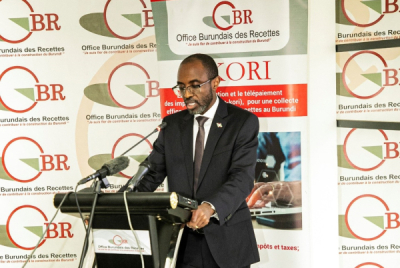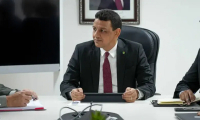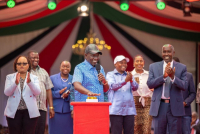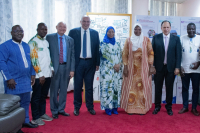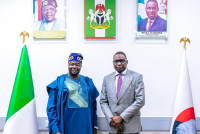
Tech (1149)
- Algeria adopted a new presidential decree to reinforce cybersecurity governance across public institutions.
- The framework mandates dedicated cybersecurity units reporting directly to institutional heads.
- Algeria faced more than 70 million cyberattacks in 2024, according to Kaspersky data.
Algeria has adopted a strengthened institutional framework to protect its information systems against rising cyber threats. Presidential Decree No. 26-07 of January 7, 2026, published on January 21 in the Official Gazette, defines the organisation and operation of cybersecurity structures within public institutions, administrations and agencies to improve the anticipation and management of cyberattack risks.
Under the decree, each public entity will establish a dedicated cybersecurity unit that remains separate from the technical information systems management function. The unit will report directly to the head of the institution and will coordinate all actions related to data protection and system security, including for supervised agencies.
The cybersecurity units will design and oversee the implementation of cybersecurity policies, identify risks through dedicated mapping, and deploy appropriate remediation plans. The framework also requires continuous monitoring, regular audits, and the immediate reporting of any incident to the competent authorities.
The decree further mandates compliance with personal data protection legislation in coordination with the national supervisory authority. In addition, it promotes coordination with public procurement and internal security bodies to integrate cybersecurity clauses into outsourcing contracts and strengthen the protection of personnel and equipment.
This initiative comes amid a sharp rise in cyberattacks in Algeria. In 2024, the country recorded more than 70 million cyberattacks, according to Kaspersky, which ranked Algeria 17th globally among the most targeted countries. Security solutions blocked over 13 million phishing attempts and neutralised nearly 750,000 malicious attachments, highlighting the scale of the risks facing users and organisations.
Authorities expect the new framework to deliver a lasting strengthening of cybersecurity governance across the public sector and to support Algeria’s digital transition through tighter institutional oversight. In a country where digital systems continue to expand rapidly, the operational cybersecurity framework aims to protect public services, critical infrastructure and sensitive data, while reinforcing confidence among citizens and economic actors in the digital ecosystem.
This article was initially published in French by Samira Njoya
Adapted in English by Ange J.A. de BERRY QUENUM
-
Côte d’Ivoire appointed Djibril Ouattara as Minister of Digital Transition and Technological Innovation on Jan. 23, 2026.
-
Ouattara brings more than 20 years of telecom and ICT experience, including leadership roles at MTN and Canal+.
-
The government expects faster progress on digital administration, broadband rollout, cybersecurity, and 5G preparation.
Djibril Ouattara is now Côte d’Ivoire’s Minister of Digital Transition and Technological Innovation. The government appointed him on Friday, Jan. 23, as part of the Beugré Mambé II cabinet reshuffle. He succeeds Ibrahim Kalil Konaté, who had held the portfolio since October 2023.
A recognized figure in the telecom ecosystem, Ouattara brings more than two decades of experience in information and communication technologies. He previously led MTN Congo and later MTN Côte d’Ivoire, where he oversaw network modernization programs, digital infrastructure expansion, and service quality improvements in a highly competitive market.
His professional career also includes senior management roles at Canal+ Côte d’Ivoire and Etisalat Atlantique Togo, a West African telecommunications operator active in mobile, internet, and data services.
Trained at the Félix Houphouët-Boigny National Polytechnic Institute and holding an MBA from the MIT Sloan School of Management in the United States, Ouattara combines technical expertise, strategic management skills, and international exposure. This profile is expected to influence the execution of the state’s flagship digital projects.
As head of the Ministry of Digital Transition and Technological Innovation, Ouattara takes charge of several structural initiatives. Government priorities include accelerating the digitalization of public administration, improving the quality of digital public services, strengthening cybersecurity, and enhancing the protection of personal data.
The government also expects faster deployment of high-speed broadband infrastructure, preparation for the introduction of 5G, and expanded coverage in rural areas that remain poorly connected. Côte d’Ivoire already counts more than 58 million active mobile lines and reports an internet penetration rate exceeding 185%, according to official data.
The new minister will also need to structure an environment that supports local innovation. Authorities expect stronger support for startups, easier access to private investment, and expanded digital skills development for young people, as demand for technology talent continues to rise.
Djibril Ouattara’s appointment marks a new phase in Côte d’Ivoire’s digital governance. After a period focused on institutional structuring under his predecessor, the executive now seeks faster operational execution to convert digital ambitions into concrete, measurable, and sustainable results.
This article was initially published in French by Samira Njoya
Adapted in English by Ange J.A. de BERRY QUENUM
-
Guinea completed the rehabilitation and equipping of its cybercrime directorate, financed by the National Development Budget.
-
Authorities upgraded facilities and equipment to support digital investigations and evidence collection.
-
The country ranked in the third performance tier in the ITU’s 2024 Global Cybersecurity Index, with strong legal and organizational scores.
Guinea continued to strengthen its digital security framework. On January 21, the Prime Minister’s Office announced the full rehabilitation and equipping of the Directorate of Cybercrime and the Fight Against Technological Traces. The National Development Budget financed the initiative.
Prime Minister Amadou Oury Bah visited the new premises alongside the Minister of Security and Civil Protection, General Bachir Dial.
The infrastructure is located in the Minière district in Dixinn municipality. The facility includes a modern two-storey building designed to meet technical requirements for digital investigations. Authorities officially inaugurated the site on December 17, 2025, and they equipped it with specialized tools to analyze technological traces, collect digital evidence, and process information technology-related offenses.
This modernization comes as cybersecurity holds a strategic role in Guinea’s public policies. The progressive digitalization of administrative services, the expansion of electronic payments, and the growth of digital usage increase risks related to cyberattacks, identity theft, and online fraud. Authorities aim to adapt National Police operational capacities to a rapidly evolving digital environment.
In its Global Cybersecurity Index 2024, the International Telecommunication Union stated that countries must prioritize cybersecurity to fully harness information and communication technology potential. Guinea ranked in the third of five performance categories established by the UN agency.
The country recorded strong results in legal and organizational frameworks, with scores of 16.27 and 14.38 out of 20, but it still faces gaps in technical and operational capacity.
Through this investment, Guinea aims to improve the effectiveness of cybercrime enforcement, enhance training for specialized agents, and strengthen citizen confidence in security services. Over the long term, the framework should secure digital usage, support the country’s digital transformation, and provide a safer environment for economic actors engaged in digital development.
This article was initially published in French by Samira Njoya
Adapted in English by Ange J. A. de BERRY QUENUM
-
Internet shutdowns cost sub-Saharan Africa an estimated $1.56 billion in 2024, according to Top10VPN.
-
Governments imposed at least 300 shutdowns worldwide over the past two years, making 2024 the worst year since 2016.
-
Sudan accounted for about 72% of Africa’s total economic losses from shutdowns in 2024.
UNESCO has expressed concern over the growing use of Internet shutdowns ordered by governments, particularly during political crises or election periods. In a statement published on Jan. 21, the UN agency stated that Internet access represents a cornerstone of freedom of expression and a central component of democratic rights. UNESCO urged states to prioritize policies that support connectivity rather than impose restrictions.
This position comes amid a global increase in government-imposed shutdowns, including across Africa. According to digital rights group Access Now, which UNESCO cited, authorities recorded at least 300 Internet shutdowns across more than 54 countries over the past two years. The data made 2024 the worst year for shutdowns since 2016.
Since the start of 2026, several countries have again imposed full or partial connectivity disruptions. Governments implemented these measures during large-scale protests or sensitive electoral processes.
In sub-Saharan Africa, these practices carry a particularly heavy economic cost. According to the Global Cost of Internet Shutdowns 2024 report published by British platform Top10VPN, Internet shutdowns and social media restrictions caused estimated losses of $1.56 billion in the region in 2024. Although losses declined slightly from $1.74 billion in 2023, the figures remain substantial and reflect the persistence of measures that slow Africa’s digital economic growth.
The report showed that shutdowns totaled 32,938 hours across sub-Saharan Africa in 2024 and affected 111.2 million Internet users. Sudan ranked among the hardest-hit countries, with estimated economic losses of $1.12 billion, or nearly 72% of the regional total, amid conflict and prolonged restrictions. Ethiopia and Kenya also posted significant losses of $211.2 million and $75 million, respectively, in contexts involving security tensions, protests, and information controls.
Authorities generally justify Internet shutdowns on grounds of national security, public order, or efforts to combat disinformation. In practice, governments often implement these measures through social media blockages, intentional bandwidth throttling, or complete shutdowns. These actions disrupt platforms that play central roles in news distribution, commercial activity, digital financial services, and social organization.
UNESCO said these disruptions extend far beyond access to information alone. The agency stated that shutdowns weaken media ecosystems, hinder journalists’ work, and encourage the spread of unverified information. UNESCO added that shutdowns also undermine related fundamental rights, including access to education, freedom of assembly, and participation in public life, while eroding trust in the digital environment.
Many African countries continue to rely on digital technologies to drive growth, expand financial inclusion, and modernize public services. Against this backdrop, repeated Internet shutdowns increasingly conflict with these objectives. Top10VPN said it calculated economic losses based on digital GDP, shutdown duration, and the number of affected users, highlighting direct revenue losses for businesses, telecom operators, and governments themselves.
This article was initially published in French by Samira Njoya
Adapted in English by Ange J. A. de BERRY QUENUM
-
Madagascar will train 1,000 young people for free in digital professions by the first half of 2026.
-
The program relies on a partnership between the OIF and Madagascar’s vocational training ministry.
-
Authorities aim to train 40,000 people in digital skills nationwide by 2028.
In Madagascar, the government and its partners will train 1,000 young people free of charge in digital professions by the end of the first half of 2026 under the “D-CLIC, train in digital skills with the OIF” program. Authorities officially launched this new phase of the project on Monday, January 19, in Antananarivo through a partnership between the International Organisation of La Francophonie and the Ministry of Technical Education and Vocational Training.
Le projet #DCLIC franchit une étape décisive à #Madagascar. Grâce à un partenariat entre l’OIF et le ministère de l’Enseignement technique et de la Formation professionnelle (METFP), 1 000 jeunes seront formés gratuitement aux métiers du #numérique d’ici la fin de l’année 2026.… pic.twitter.com/Cn7iVvBHqr
— La Francophonie (@OIFrancophonie) January 21, 2026
This phase marks the program’s transition to larger-scale operational deployment. The initiative begins with the training of national instructors, who will form a network designed to provide long-term support to beneficiaries across the country. The OIF developed the training pathways through an online learning platform, with a focus on digital skills in demand on the labor market as well as digital entrepreneurship.
The D-CLIC program forms part of a broader strategy to strengthen digital skills across the Francophone space. The program operates in several African countries and aims to improve youth employability, facilitate professional integration, and address rising demand for digital talent amid the gradual digitalization of African economies.
In Madagascar, the initiative comes as demand for digital training continues to intensify. The country faces strong demographic pressure, with a predominantly young population, while the formal labor market remains limited. Authorities now position digital skills as a core pillar of vocational training policy. The Minister of Technical Education and Vocational Training, Marie Marcelline Rasoloarisoa, recently said Madagascar aims to train 40,000 people in digital skills by 2028 in order to adapt the workforce to new economic and technological uses.
Against this backdrop, the D-CLIC program functions as an operational component of the national strategy. By expanding access to certified training and promoting the acquisition of immediately applicable skills, the new cohort could improve youth employability, support self-employment, and contribute to the emergence of a more structured digital ecosystem in Madagascar.
This article was initially published in French by Samira Njoya
Adapted in English by Ange J. A. de BERRY QUENUM
-
Burundi launched the e-KORI system to digitalize tax declaration and payment.
-
The Burundi Revenue Authority leads the project with World Bank support.
-
Authorities aim to expand the tax base, improve transparency, and strengthen budget planning.
The Burundian government officially launched the implementation phase of the e-KORI system on Monday, January 19, in Bujumbura. The Burundi Revenue Authority is leading the project with financial and technical support from the World Bank. The program focuses on online tax declaration and payment for both taxes and fees.
“The implementation of such a system represents a crucial step toward the digital transformation of our country by allowing the state to mobilize its own resources more effectively,” Finance, Budget, and Digital Economy Minister Alain Ndikumana said. “The e-KORI project is a strategic tool because it will allow Burundi to collect its own funds and finance its development projects without relying exclusively on external aid,” he added.
The e-KORI program aims to digitalize all processes related to domestic tax collection and non-tax revenue. The system allows taxpayers to submit declarations and make payments online, track transactions remotely, and reduce physical interactions with tax offices. Authorities also present the platform as a tool to improve revenue traceability, reduce errors, and strengthen tax control.
The launch comes as Burundi accelerates its transition toward a digital public administration. In recent years, authorities have implemented reforms to modernize public financial management, improve governance, and strengthen transparency. However, domestic revenue mobilization remains a challenge in a country characterized by a large informal sector and tax procedures that many economic actors consider complex.
Project officials said e-KORI will roll out in nine phases, with authorities validating each deliverable before moving to the next stage. The program also includes training and awareness sessions for tax officials and taxpayers. Authorities placed system security at the center of the project. A technical partner is responsible for infrastructure protection, data security, and cyber-risk prevention amid growing cybersecurity challenges linked to the digitalization of public finances.
Over the long term, authorities expect e-KORI to broaden the tax base, strengthen taxpayer compliance, and improve state budget planning. By facilitating access to tax services and securing digital exchanges, the system could also improve the business climate, strengthen trust between the administration and citizens, and support Burundi’s ambition to build a more efficient, transparent, and digitized state.
This article was initially published in French by Samira Njoya
Adapted in English by Ange Jason Quenum
-
Mauritania’s digital ministry launched a public portal disclosing procurement and spending data.
-
The platform publishes all expenditures since the government took office in August 2024.
-
The ministry more than doubled its 2026 budget to nearly $24.2 million.
Mauritania’s Ministry of Digital Transformation unveiled the platform on Sunday, January 18, in Nouakchott. The initiative supports the government’s push to modernize public administration and strengthen financial transparency.
Accessible to the public at transparence.mtnima.gov.mr, the portal allows users to consult all expenditures committed by the ministry since the formation of the current government on August 7, 2024. The platform covers contracts awarded by the Public Procurement Commission as well as those concluded by internal purchasing committees, including projects and agencies under the ministry’s supervision.
The portal provides detailed data on signed and ongoing contracts, including contract values, selected suppliers, the number of bids received, and procurement methods used. The ministry updates the information continuously to support real-time monitoring of budget execution.
The platform also includes an advanced search engine that allows users to filter data by contracting authority, contract type, procurement stage, and funding source. A statistical section presents interactive tables and charts, offering a clearer view of spending structures and their distribution by category or supplier.
The launch comes as the Ministry of Digital Transformation manages growing budgetary resources. For fiscal year 2026, the government set the ministry’s budget at 959.6 million ouguiyas, or about $24.2 million. The allocation represents a 104.6% increase from 2025, when the budget stood at 468.97 million ouguiyas, following 550.68 million ouguiyas in 2024.
Authorities said the disclosure aims to promote fairer competition among economic operators by ensuring equal access to public procurement information. Media organizations, civil society groups, and researchers can use the database to assess public policies and monitor state financial management. The portal is free to access, available in Arabic and French, and requires no registration.
This article was initially published in French by Samira Njoya
Adapted in English by Ange Jason Quenum
-
Kenya has assembled nearly five million smartphones locally to expand digital access and industrial capacity.
-
The government links smartphone affordability to job creation in digital services and BPO.
-
Authorities plan large-scale investments in youth entrepreneurship, digital skills, and fiber infrastructure.
Kenya has assembled nearly five million smartphones locally to expand access to digital tools and stimulate job creation and technological industrialization. William Kabogo Gitau, Cabinet Secretary for Information, Communications and the Digital Economy, announced the figure on Monday, January 19, during the launch of the NYOTA commercial capital support program for young entrepreneurs.
Government prioritises youth empowerment
— H.E William Kabogo Gitau, E.G.H (@honkabogo) January 19, 2026
The Government has rolled out several initiatives to empower youths, create vast opportunities for boosting entrepreneurship and job creation.
Today, I was honoured to join the President H.E. Dr. @WilliamsRuto and Deputy President H.E.… pic.twitter.com/H7ytbZYh0Y
Manufacturers sell the devices at prices ranging from 6,000 to 8,000 Kenyan shillings ($46.5 to $62.2). The government positions the initiative within its digital inclusion strategy as Kenya seeks to expand technology adoption, particularly among young people, to fully leverage mobile connectivity.
Kenya records mobile penetration above 140%, according to data from the Communications Authority of Kenya. Wider smartphone access plays a central role in expanding digital usage. The trend could accelerate adoption of digital financial services, e-commerce, e-government platforms, and online employment services while supporting the growth of the local digital economy.
The industrial push aligns with a broader digital employment strategy. The government reports that business process outsourcing companies and digital platforms have already created more than 300,000 jobs. Authorities expect the segment to play a key role in economic diversification.
At the same time, authorities are expanding support programs for youth entrepreneurship. Through the NYOTA project, the government recently mobilized 258.4 million Kenyan shillings to support more than 10,300 young entrepreneurs in Nairobi, Kiambu, and Kajiado counties. The program aims to raise incomes and promote savings.
Skills development forms another pillar of the strategy. The government has installed about 350 digital centers in technical and vocational education institutions. Authorities plan to deploy 1,450 additional centers across constituencies to reduce the digital divide and stimulate local innovation.
To support the transformation, Kenya is also investing in infrastructure. The government plans to deploy 100,000 kilometers of high-speed fiber optic cable nationwide. Authorities view the rollout as essential to attracting investment and supporting digital activities across the country.
This article was initially published in French by Samira Njoya
Adapted in English by Ange Jason Quenum
- Egyptian group MAG Trade & Investment presented digital projects to Burkina Faso’s government.
- Discussions focused on digital health and digital identity solutions.
- Burkina Faso seeks foreign partners to accelerate public-sector digital transformation.
Burkina Faso continues efforts to digitize public administration. On Wednesday, January 14, the Minister of Digital Transition, Posts and Electronic Communications, Aminata Zerbo/Sabane, received a delegation from Egyptian group MAG Trade & Investment, which presented several technology projects.
According to data released by the ministry, discussions focused on digital solutions applied to the health sector and digital identity. These sectors rank among government priorities, as Burkina Faso has committed for several years to modernizing public administration and improving access to public services.
MAG Trade & Investment, accompanied by Burkina Faso’s National Bureau of Major Projects (BN-GPB), stated that it sought cooperation based on skills transfer, local capacity building, and deployment of sustainable digital solutions. Moreover, the Egyptian company said it aimed to contribute to structuring projects aligned with the national digital development strategy.
These discussions occurred as Burkina Faso seeks to strengthen its digital ecosystem, while several reforms remain underway, including administrative procedure digitization, public system interoperability, and user data security. Authorities view digital identity solutions as a key lever to improve public action efficiency and support digital inclusion.
Authorities stated that opening the market to foreign investors and operators aims to address technological and financial gaps while strengthening national expertise. Minister Aminata Zerbo/Sabane welcomed the Egyptian group’s interest and said such initiatives aligned with the government’s vision to accelerate digital transformation.
At this stage, officials announced no agreements. However, discussions could eventually lead to structured partnerships, as Burkina Faso intensifies efforts to make digital technology a pillar of public service modernization and economic development.
This article was initially published in French by Samira Njoya
Adapted in English by Ange Jason Quenum
- Nigeria signed a cooperation agreement between EFCC and NASRDA to use space technology against illegal mining.
- Authorities estimate illegal mining costs Nigeria about $9 billion per year.
- The partnership remains non-operational, with no implementation timeline announced.
Nigeria plans to rely on space technology to strengthen the fight against crime, particularly illegal mining. On January 15, the Economic and Financial Crimes Commission (EFCC) and the National Space Research and Development Agency (NASRDA) signed a memorandum of understanding to formalize cooperation.
EFCC, NASRDA Sign MoU on Inter-agency Collaboration
— EFCC Nigeria (@officialEFCC) January 15, 2026
The Economic and Financial Crimes Commission, EFCC and the National Space Research and Development Agency, NASRDA on Thursday, January 15, 2026 formalised their resolve for inter-agency collaboration with a Memorandum of… pic.twitter.com/7oKEFT3GvA
According to EFCC Executive Chairman Ola Olukoyede, NASRDA will provide technologies designed to strengthen the commission’s investigative and asset-tracking capabilities. “With your technologies, we will access areas that our traditional means cannot reach. You know that we are engaged in investigating and prosecuting illegal mining activities. These tools will help us identify some of these areas,” he said.
The initiative follows cooperation launched in June 2025 between NASRDA and the Ministry of Steel Development. At that time, Minister Shuaibu Abubakar Audu called for replacing outdated monitoring systems with more advanced satellite-based solutions. He said Nigeria’s steel sector, despite strong potential for economic transformation and industrialization, continued to face structural challenges, including illegal extraction and limited reliability of data provided by some operators.
“These practices weaken the country’s economic potential and complicate regulatory efforts as well as long-term planning,” he said. Authorities estimate that illegal mining causes annual losses of about $9 billion for Nigeria.
However, authorities stated that both agencies have so far agreed only on the principle of cooperation. Officials have announced no specific timeline for operational implementation of the memorandum. Nonetheless, Olukoyede said the EFCC will establish a dedicated team to monitor implementation and conduct periodic evaluations of the partnership’s effectiveness.
This article was initially published in French by Isaac K. Kassouwi
Adapted in English by Ange Jason Quenum
More...
- Ivory Coast launched the MaPoste application to link digital identity with postal and administrative services.
- ONECI integrated the National Register of Natural Persons into La Poste’s digital platform.
- The initiative aims to reduce travel, speed up procedures, and strengthen transaction security.
Ivory Coast continues to modernize its public administration through digital tools. On Friday, January 16, 2026, the National Office of Civil Status and Identification (ONECI) and La Poste de Côte d’Ivoire launched “MaPoste,” an application designed to dematerialize access to postal and administrative services through digital identity.
Designed as a “super application,” MaPoste allows every citizen holding a National Identification Number (NNI) to access a digital mailbox from a smartphone. The tool aligns with the national digital transformation strategy, which aims to bring public services closer to users while strengthening the security of exchanges.
Through this platform, La Poste de Côte d’Ivoire adopts a so-called phygital approach by combining a physical network of more than 200 agencies with fully digital services. The initiative seeks to reduce travel, streamline procedures, and improve user experience at a time when demand for digital public services continues to rise.
The project relies on the integration of the National Register of Natural Persons (RNPP), which ONECI manages. The system assigns each citizen a unique identity based on biometric data and serves as a central pillar of Ivory Coast’s e-government development. Authorities state that linking digital services to a certified identity remains a key condition to ensure transaction reliability and protect personal data.
In practical terms, MaPoste aims to facilitate several administrative procedures, including the delivery of national identity cards and the request and tracking of official documents such as civil status certificates, nationality certificates, and criminal records. The initiative seeks to reduce processing times and strengthen procedural traceability.
More broadly, the initiative fits into Ivory Coast’s wider push to digitize public services. In recent years, the country has multiplied projects around digital identity, cybersecurity, and administrative dematerialization, with the ambition to build a public administration that operates more efficiently, includes more citizens, and adapts better to digital usage.
This article was initially published in French by Samira Njoya
Adapted in English by Ange Jason Quenum
-
Burundi lawmakers unanimously approved a law regulating the collection, processing, and use of personal data amid accelerating digitalisation.
-
The legislation creates an independent data protection authority and introduces criminal penalties for violations.
-
The reform aligns Burundi with African and international digital governance standards and supports rollout of a biometric national ID.
Burundi adopted a dedicated legal framework for personal data protection as lawmakers moved to secure the country’s digital transformation and strengthen citizen trust.
Members of the National Assembly meeting in plenary session on Thursday, January 15, in Kigobe unanimously adopted a bill governing the collection, processing, and exploitation of personal data, as public administration and services expand digital systems.
Données personnelles : le Burundi verrouille l’ère numérique
— Irebe FM (@IrebeFM) January 15, 2026
Une Assemblée en mode responsabilité
L’Assemblée nationale s’est réunie ce 15 janvier 2026, au Palais des Congrès de Kigobe, sous la présidence de Daniel Gélase Ndabirabe, afin d’analyser et d’adopter le projet de loi… pic.twitter.com/NRu0IhKEsK
The Ministry of Interior, Community Development, and Public Security sponsored the law to close a legal gap created by the rapid spread of digital tools across government, the private sector, and daily life. Authorities expanded computerized systems, digitised the voter register, and advanced the rollout of a biometric national identity card, which together increased the production of sensitive data that existing Burundian law regulated weakly.
The law establishes core principles for privacy protection and emphasizes respect for fundamental rights and freedoms. It introduces multiple data protection regimes and creates an independent administrative authority responsible for enforcement, which aligns Burundi’s framework with international standards for digital governance.
On the operational front, the legislation introduces specific criminal penalties for violations, complementing existing cybercrime provisions. Lawmakers framed these measures as essential to restoring public confidence in digital systems, as parliamentary debates highlighted concerns over data security and misuse.
Beyond the national context, the reform fits within a broader continental push. The African Union has promoted legal harmonisation through the Malabo Convention on cybersecurity and personal data protection. About 39 African countries have already adopted dedicated data protection laws, while several others continue legislative reviews.
In Burundi, the new framework should also remove a key obstacle to deploying the biometric national identity card. Authorities said technical milestones already include installing registration software aligned with the new administrative boundaries. Officials currently test the system in about a dozen pilot communes before a phased nationwide rollout.
This article was initially published in French by Samira Njoya
Adapted in English by Ange Jason Quenum
- Morocco plans to generate 100 billion dirhams ($11 billion) in additional GDP from artificial intelligence by 2030.
- The government expects AI adoption to create 50,000 jobs and train 200,000 graduates in AI-related skills.
- Morocco will launch the Jazari Root AI network, including a 50-MW sovereign data center, to anchor its national ecosystem.
Morocco has placed artificial intelligence at the center of its economic transformation strategy. By 2030, the kingdom aims to generate 100 billion dirhams in additional GDP, equivalent to about $11 billion, through structured AI deployment. Official projections also link this strategy to the creation of 50,000 jobs and the training of 200,000 graduates in AI-related skills.
Amal El Fallah Seghrouchni, Minister Delegate for Digital Transition and Administrative Reform, unveiled these targets on Monday, January 12, in Rabat during a digital-focused conference. She stated that Morocco’s current GDP stands at around $170 billion and described artificial intelligence as a major growth lever, provided authorities integrate it within a structured, sovereign, and impact-driven framework.
These announcements form part of Morocco’s forthcoming national artificial intelligence strategy, whose roadmap authorities plan to release shortly. The strategy rests on several pillars, including skills development, the build-out of sovereign digital infrastructure, and the expansion of cloud and data-processing services capable of supporting advanced AI use cases nationwide.
To operationalize this ambition and structure the national ecosystem, Morocco also announced the launch of the Jazari Root network, which will serve as a central hub for the country’s artificial intelligence ecosystem. The project will include a 20-hectare campus and a 50-MW sovereign data center. Jazari Root aims to bring together researchers, startups, large companies, and public institutions around applied projects ranging from e-government and smart cities to agriculture, healthcare, and logistics.
By structuring investments and its ecosystem at an early stage, Morocco seeks to position itself as a credible artificial intelligence player at regional and African levels. The kingdom aims to capture part of the value that AI could generate in the global economy, which PwC estimates at nearly $15.7 trillion by 2030.
This article was initially published in French by Samira Njoya
Adapted in English by Ange Jason Quenum
- Guinea quadrupled backbone capacity to 200 Gbps and deployed nearly 12,000 km of fiber
- Digital reforms generated more than $26.9 million in budget savings in public administration
- Telecoms now account for 4.4% of GDP and attracted about $220 million in investment
In 2025, Guinea intensified initiatives under its digital transformation strategy. Authorities accelerated infrastructure deployment, strengthened state digitalization, and modernized telecom sector governance. The Minister of Posts, Telecommunications and Digital Economy, Rose Pola Pricemou, presented these developments during a sector review.
On infrastructure, Guinea quadrupled national backbone capacity to 200 Gbps from 50 Gbps. Authorities deployed nearly 12,000 kilometers of fiber optic cable to connect all administrative regions. The country also commissioned its first Tier 3–certified national data center, operationalized an Internet Exchange Point, and secured sovereign management of the .gn country-code domain, which strengthened network security and resilience.
Public administration digitalization also gained momentum. In 2025, authorities deployed 39 public service applications and fully digitized several key procedures, including passport issuance, through a unified digital portal. The TELEMO platform fully digitized public procurement, improving transparency and traceability. At the same time, the FUGAS unified civil service registry streamlined workforce management and generated budget savings exceeding 233 billion Guinean francs, or about $26.9 million.
Education and digital inclusion programs expanded in parallel. Authorities trained more than 10,000 people in digital skills. The Univ Connect project interconnected several universities and reached more than 80,000 students, lecturers, and researchers. In primary education, the GIGA program connected 585 schools to the internet, with authorities targeting 2,200 schools by 2026, or nearly 900,000 beneficiaries. Authorities also expanded regional digital hubs, with 20 additional centers under construction. The government invested more than $4 million to support tech entrepreneurship and stimulate local innovation.
These reforms delivered economic and strategic returns. The telecommunications sector now accounts for 4.4% of Guinea’s gross domestic product and attracted about $220 million in investment. At the same time, mobile internet costs fell by about 25%.
In 2026, authorities will prioritize extending connectivity to underserved areas, with more than 600 identified white zones. The government will also expand digital use in education and public services and strengthen cybersecurity and local data hosting. However, challenges remain, including universal access, infrastructure maintenance, and continuous skills training to support sustainable nationwide adoption.
This article was initially published in French by Samira Njoya
Adapted in English by Ange Jason Quenum



